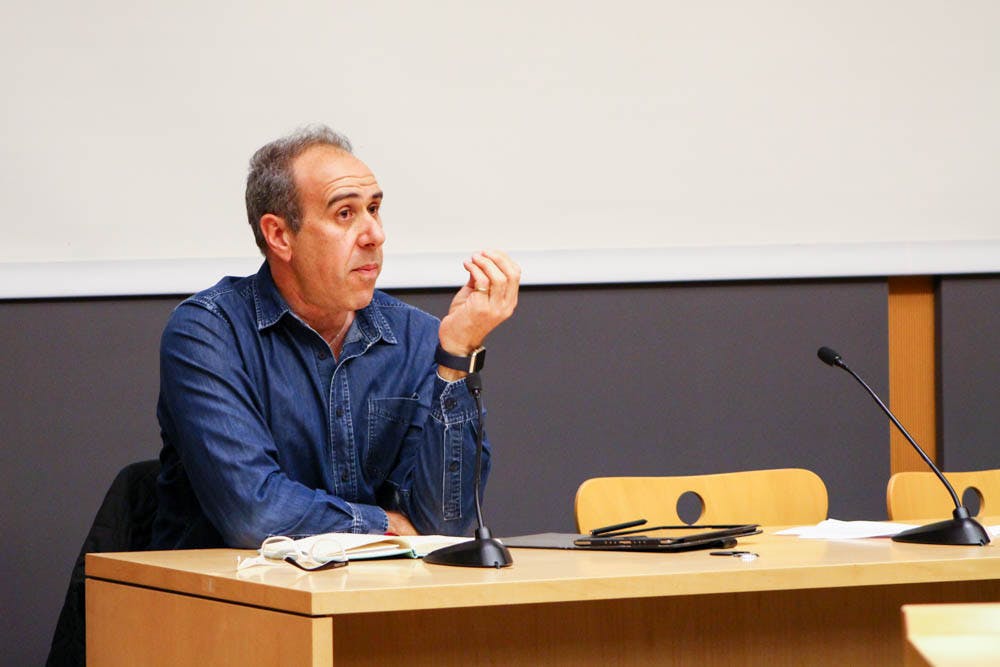Ivor Chipkin, founding director of the Public Affairs Research Institute, based at both the University of the Witwatersrand in Johannesburg and the University of Cape Town, delivered a lecture titled “Does Democracy Have a Future in South Africa” Thursday. He spoke about the current political turmoil in South Africa, in addition to his hopes for the formation of a stable democracy in the years to come.
Chipkin began by naming a few political events that began the country’s political erosion. The 2007 election was “a massive revolt within the African Congress” and was a starting point for the downgrade of political stability in current-day South Africa.
“South Africa has been appropriated by political elites. These political elites appropriate the (working class) politics to confront, break and violate the constitution,” Chipkin said.
Chipkin continued by describing the radical changes to the economy. There was a push to “create a new black-owned and black-controlled, industrial economy,” Chipkin said. “Around 2010 (and) 2011, (the government) began displacing established white firms from their position in the economy and incentivizing new, large-scale black-owned firms,” he added. “The constitution upholds the principles of fair value and of black economic empowerment,” Chipkin said.
Chipkin gave examples of the rampant corruption that he said plagues the political arena in South Africa. For example, the South African Revenue Services was used to “go after non-compliant tax-payers, many of whom were politically connected,” which lead to a “purge in the SARS and new politically-aligned leadership being brought in,” Chipkin said. Numerous politically driven firms and agencies were attacked using similar methods, leading to constant instability and weakening in the country.
“Decision-making (was) shifted away to these informal networks, bound by personal allegiances and away from political organs,” Chipkin added.
Chipkin concluded by expressing hope for cultural change and political evolution. “What is needed is for (President Jacob) Zuma and the people around him to be arrested, tried and hopefully convicted. … (This) is going to redeem South Africa,” Chipkin said. “The political conviction that is needed requires a rallying behind democratic politics and reform that can have real benefits for ordinary and working people,” he added.
Though South Africa may appear to be collapsing, Chipkin said it can be viewed as progressive, “like a phoenix rising from the ashes.”
Among the many in attendance were Patrick Heller, chair and professor of sociology and professor of international and public affairs, who has worked closely with Chipkin in South Africa. “We wanted to shed light on what is occurring in South Africa and brought him, among other activists, for the discussion regarding civil society and human rights in peril,” Heller told The Herald.
Harsh Mander, a prominent activist in India who gave a lecture earlier in the day, told The Herald he came to the Chipkin’s lecture to “understand the context from different points of the world.”
Daniel Smith, chair and professor of anthropology, spoke on bringing Chipkin to Brown. “We try to take advantage of when there (are) good people on campus,” Smith told The Herald, “There’s a lot of profound changes going on in South Africa, and we want to bring in scholars, activists and thinkers who are addressing the problems in Africa and at the forefront of change.”
The lecture was held at the Joukowsky Forum and was sponsored by the Watson Institute of International and Public Affairs’ Africa Initiative.





